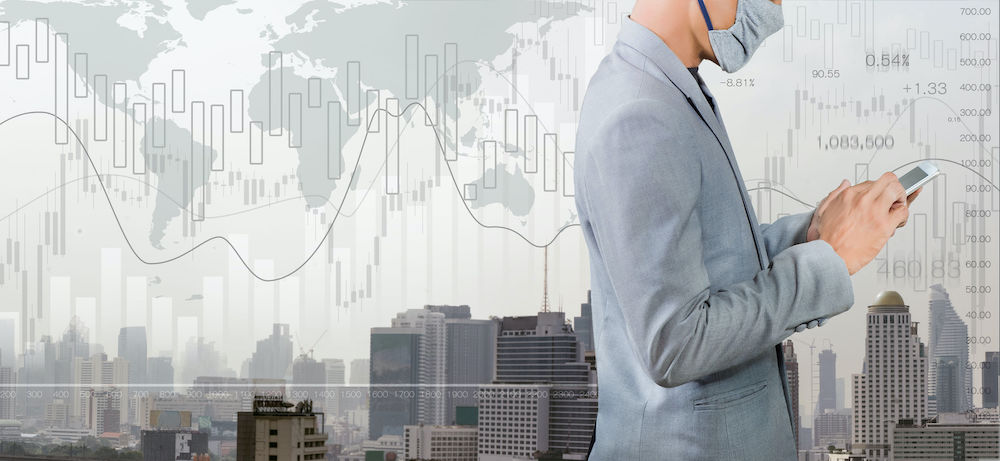
For many, the start of the new decade has been like a nightmare, mainly because of the COVID-19 pandemic. It has shaken not just the global social landscape but also the financial markets as a whole.
The economic impact brought about by the coronavirus is said to be worse than the 2008 financial crisis. In fact, during the first month, the world’s major stocks suffered massive declines. Other markets, including futures, indices and oil also felt the burden, with oil prices entering negative territory.
While the markets mentioned above felt the negative impact of COVID-19, the Forex market, the world’s largest, actually experienced a significant uptick in trading volumes. Thus, Forex brokers experienced a surge in their income or revenue during the first quarter of the year.
COVID-19 cases around the world continue to rise and there are growing fears of a second wave of infections coming. Many countries which currently have high numbers of positive cases are vulnerable to it, and the US is no exception. How could this affect Forex trading in the country? How can brokers prepare themselves for the second wave?
COVID-19 Second Wave in the USA?
Recently, a surge in COVID-19 confirmed cases has been reported in many US states, including several emerging hot spots. That has reinforced new fears of a second wave of the illness in the country.
However, several medical professionals have said otherwise, that the US is, in fact, still in the first wave. According to Dr Anthony Fauci, a White House advisor, the first wave will only end when the number of COVID-19 cases reaches low single digits.
That said, it’s still uncertain whether we will see a second wave of COVID-19 cases in the US. But should there be a second wave, we can’t also know for sure how it would affect the Forex industry in the US as a whole.
Forex brokers have to plan for the future. We’d seen an increase in trading rates for brokers around the world in the first quarter of 2020. Sometime in the second quarter, however, volatility had cooled off. But several Forex trading providers saw a turnaround in volumes of trade in June.
As trading volumes soared, COVID-cases worldwide also rose, with over 13 million positive cases.
Will Forex Brokers be Prepared for More Volatility?
It is also debatable if we will ever see the second wave of COVID-19 confirmed cases not just in the US but also in other countries heavily impacted by the pandemic. So it’s important to know what Forex brokers are doing to prepare for a possible increase in volatility.
In an interview with Finance Magnates, the Chief Commercial Officer of CFD and Forex broker, Pavel Spirin, said the company has a strong infrastructure that is able to remove or at least minimize any negative impact on its clients’ trading. The CCO said a constructive communication is in place to brace their customers for any unfavourable market conditions.
Meanwhile, the company is gearing up for any possible volatility and financial market instability at RoboForex, said Denis Golomedov, the broker’s Chief Marketing Officer. The likelihood of experiencing the volatility level that we witnessed in March, however, is very low for him.
Where Will Traders and Investors Go if High Volatility Does Return?
Denis Golomedov also said that if such volatility does return, Forex traders and investors are likely to put their money in safe-haven assets, including gold and silver. Investors may also show interest in safe-haven currencies such as the USD, JPY, and CHF.
However, while high volatility presents enormous potential for profits, it’ll be best to stay alert for the market news and trends. The market can be too aggressive, so traders must always develop a sound strategy before, during, and after a trade.
For Forex brokers, whether a second wave will happen or not, they must be able to meet the needs of their clients. They should put extra effort to be more proactive and innovative to provide only the best and safest trading experience. Many Forex brokers have shifted their focus on digital platforms to offer educational resources, including webinars, online workshops and trade calls.
 Between 74-89% of CFD traders lose
Between 74-89% of CFD traders lose  Your capital is at risk
Your capital is at risk  Your capital is at risk
Your capital is at risk  Your capital is at risk
Your capital is at risk